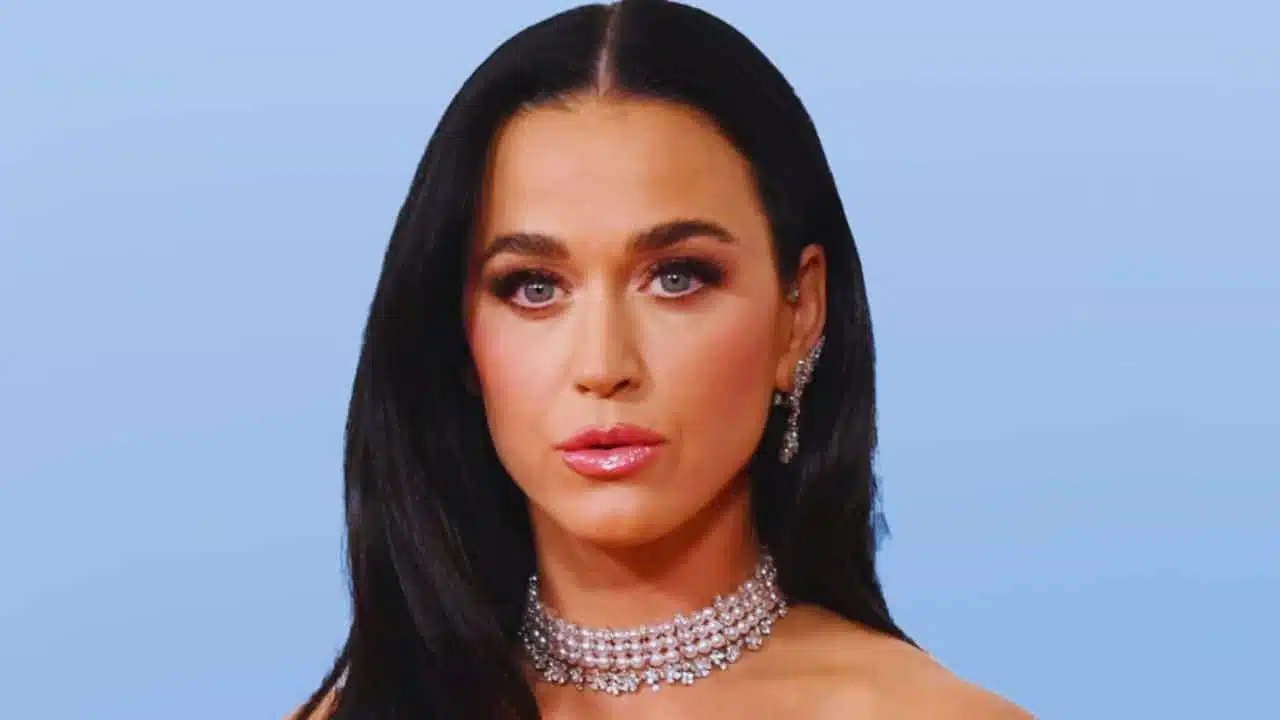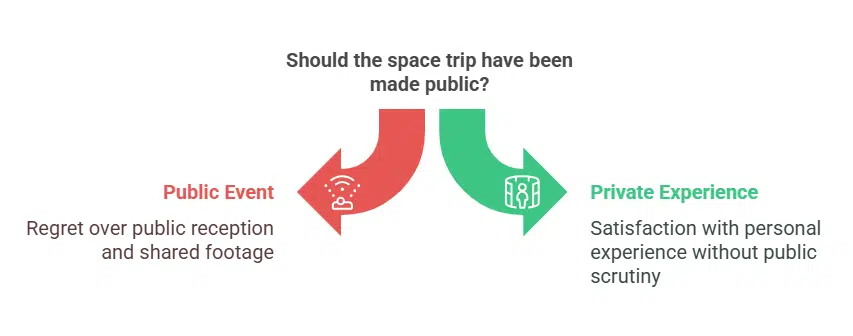Pop star Katy Perry’s highly publicized suborbital space journey aboard Jeff Bezos’ Blue Origin rocket is facing a storm of backlash from fans, environmentalists, celebrities, and even fast-food brands. While Perry framed the trip as a symbolic moment for women in space, critics have labeled it a self-indulgent stunt that failed to align with current social and environmental concerns.
The Spaceflight That Sparked Debate
On April 14, 2025, Katy Perry joined several other ultra-wealthy individuals on Blue Origin’s New Shepard suborbital rocket, developed by billionaire Jeff Bezos’ aerospace company. The flight, which reached the edge of space, was promoted as a celebration of women in science, technology, and exploration. Perry flew alongside Lauren Sánchez (Jeff Bezos’ fiancée), broadcaster Gayle King, and a handful of other female public figures in what was marketed as an empowering moment.
However, rather than praise, the mission triggered widespread criticism online and in the press. Many questioned whether Perry’s involvement truly uplifted women’s representation in science and space—or merely served as another example of celebrities using futuristic tech experiences for personal branding.
Public Mockery and Internet Backlash
The public’s response was swift and scathing. Social media platforms flooded with memes, sarcastic tweets, and angry posts accusing Perry of being tone-deaf. Critics particularly mocked her attempt to turn the space trip into a statement about female empowerment, without acknowledging real-world setbacks in diversity and inclusion policies.
This backlash came amid political controversy in the U.S., where the NASA website has recently undergone quiet revisions to remove or tone down mentions of diversity, equity, and inclusion (DEI)—an effort attributed to Donald Trump’s political allies and their anti-DEI agenda.
Critics found it ironic that Perry failed to mention any of this while trying to elevate herself as a symbol of progress for women. One viral tweet commented, “Flying in a billionaire’s rocket doesn’t make you an astronaut or a feminist hero—it makes you a tourist with a PR budget.”
Environmental Concerns: More Than Just Hot Air?
While Blue Origin promotes New Shepard as a “green” spacecraft—noting it only emits water vapor as a byproduct of its liquid hydrogen-fueled engine—scientists remain skeptical. Experts warn that even these emissions can disturb the Earth’s stratosphere and accelerate ozone depletion.
According to a 2022 report published in Nature Communications, frequent launches of this kind may contribute to long-term atmospheric damage, especially as space tourism grows. Even though Blue Origin doesn’t use fossil fuels directly, the process of manufacturing, transporting, and storing liquid hydrogen and oxygen has its own carbon footprint.
In light of this, environmentalists questioned Perry’s statement that the trip was “for the benefit of Earth.” Many viewed this claim as disconnected from scientific reality.
Celebrity Criticism Rolls In
Several high-profile figures weighed in—some seriously, others sarcastically:
-
Olivia Wilde slammed the mission, saying: “Space exploration was meant to expand human knowledge. What are they doing up there that helps anyone down here?”
-
Emily Ratajkowski took an even harsher stance, calling the stunt “beyond parody” and “literally disgusting” in a now-viral Instagram story.
-
Amy Schumer joked online that she was “waiting for an invite to be the first stand-up comic in space,” adding mockingly, “We need more TikTok content from zero gravity, clearly.”
Even corporations got involved. The official X (formerly Twitter) account of fast food chain Wendy’s joined the pile-on by tweeting:
“Can we send her back?” — a sharp jab that quickly went viral.
Katy Perry’s Reported Regret
According to a report by People, Perry is not entirely proud of how the trip was received. While she reportedly does not regret going to space—calling it “life-changing” in private—sources claim she now regrets making it such a public event.
“She regrets sharing the daisy with the world,” one insider told People, referring to a flower she took with her into space in tribute to her 4-year-old daughter.
“She wishes the video footage from inside the pod was never shown.”
These sentiments reflect an apparent disconnect between Perry’s initial vision for the flight—as a meaningful personal and symbolic act—and the actual public response.
Fast Food Feud: Wendy’s Adds Fuel to the Fire
The unexpected roast from Wendy’s social media team, suggesting Perry be “sent back” to space, caused enough noise that her team reportedly considered demanding an apology. A “source close to the situation” told People:
“Wendy’s didn’t make a joke — they made a choice. Their recent posts on X aimed at Katy Perry were not only disrespectful but blatantly inappropriate. Wendy’s should apologize and do better in the future.”
While the burger brand has made a name for itself with edgy social media content, this jab stirred debate over whether corporate humor has gone too far—especially when it involves real-life backlash and personal distress.
Kesha’s Silent Message with a Sip
The controversy took an even more personal turn when Kesha Sebert, Perry’s long-time rival and pop industry peer, shared a picture of herself casually sipping from a Wendy’s-branded cup shortly after the chain’s viral tweet.
Many saw the gesture as a subtle dig at Perry—especially considering their history. Kesha has been in a long legal battle with Dr. Luke, the controversial producer Perry collaborated with on her last album. Kesha has accused him of sexual assault and emotional abuse—allegations Perry has never publicly commented on, despite their professional association.
PR Experts Warn of Reputation Risks
Media and branding experts believe the backlash could have longer-term implications for Perry’s public image and career.
“The public mood has shifted. People want authenticity, not stunts,” said PR strategist Laura McClellan in an interview with The Guardian.
“In today’s climate, especially post-pandemic and amid social justice movements, celebrities flaunting wealth for entertainment can quickly become targets of ridicule.”
Several outlets, including The Verge and Business Insider, noted that the mission failed to resonate even with Perry’s own fans. The media labeled it a “vanity flight,” with The Economic Times publishing an op-ed suggesting it could mark a turning point in how celebrities engage with science and space tourism.
What began as a high-profile attempt to merge space travel, feminism, and personal branding has turned into a cautionary tale. Katy Perry’s Blue Origin journey may have offered her a rare view of Earth from space, but down on the ground, it revealed deep cracks in how celebrity-led messaging is perceived today.
Instead of uniting audiences with a message of hope or innovation, the mission reignited debates over privilege, environmental responsibility, and tone-deaf stunts. And with critics ranging from Oscar-winning actors to burger chains, it’s clear the fallout was broader—and louder—than anyone on that rocket likely expected.







































